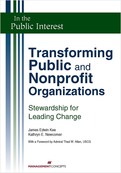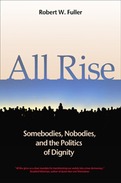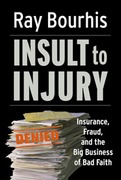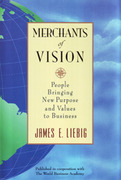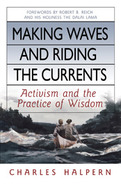2006
- By the author of the bestselling Somebodies and Nobodies: Overcoming the Abuse of Rank
- Argues that rankism--abuse of the power that comes with superior rank--does serious damage to our private relationships and public institutions
- Details how to design social institutions that overcome rankism and protect human dignity
- Learn more at www.BreakingRanks.net
America's #1 progressive radio host looks at how elites have long tried to disenfranchise citizens—particularly people of color, women, and the poor—and shows what we can do to ensure everyone has a voice in this democracy.
In today's America, only a slim majority of people register to vote, and a large percentage of registered voters don't bother to show up: Donald Trump was elected by only 26 percent of eligible voters. Unfortunately, this is not a bug in our system, it's a feature. Thom Hartmann unveils the strategies and tactics that conservative elites in this country have used, from the foundation of the Electoral College to the latest voter ID laws, to protect their interests by preventing “the wrong people”—such as the poor, women, and people of color—from voting while making it more convenient for the wealthy and white. But he also lays out a wide variety of simple, commonsense ways that we the people can fight back and reclaim our right to rule through the ballot box.
2009
- A compelling personal story that exposes how insurance companies get away with denying valid claims, terminating benefits, and destroying people's lives
- UnumProvident, the main company profiled in the book, has 25 million policyholders--over one out of ten people in the United States holds an Unum policy
- Recommends how to reform this corrupt and unjust system
Joan Hangarter bought a disability policy in 1990 to protect her should she ever become seriously ill. She dutifully paid her annual premiums for nearly a decade. But when she became disabled, she and her children found themselves homeless and bankrupt when her insurer--UnumProvident--stopped paying her benefits. With the help of attorneys Ray Bourhis and Alice Wolfson, Hangarter won a landmark $7.7 million jury verdict against Unum.
Through the compelling stories of ordinary people who have been driven to bankruptcy--or worse--when tragedy struck, Bourhis shows how the insurance industry runs roughshod over the very people it is paid to protect. He shows how the industry has become so insulated from accountability that neither lawsuits, punitive damage awards, federal court injunctions, newspaper headlines, nor television exposure can derail their determined efforts to turn a profit at any cost.
Bourhis, a national champion of policyholder rights, walks readers through both Joan Hangarter's heart-wrenching case and the stories of Susan McGregor, Stuart Gluck, John Tedesco, Laurie Hindiyeh, Eugene Molfino, Julie Guyton, Michael Baldwin, Margaret Santana, and numerous other claimants--real people with heart disease, AIDS, spinal injuries, brain damage, Parkinson's disease, and other disabilities whose benefits were cut off just when they needed them most. Bourhis shows how the world's largest disability carrier, UnumProvident, has relied on a host of shady practices--from surveillance to one-sided medical evaluations to policy re-interpretations-to target and terminate benefit payments.
Through these cautionary tales, he shines a spotlight on widespread bad faith double-dealing by insurance providers and details the key regulatory failures that enable these practices to continue unchecked.
- Find out more at www.book-insulttoinjury.com
- A compelling personal story that exposes how insurance companies get away with denying valid claims, terminating benefits, and destroying people's lives
- UnumProvident, the main company profiled in the book, has 25 million policyholders--over one out of ten people in the United States holds an Unum policy
- Recommends how to reform this corrupt and unjust system
1994
In our time of dramatic worldwide change, can business leaders meet the challenges of the marketplace and the needs of people, communities, and the planet? Merchants of Vision profiles 40 business leaders who are successfully working to do just that.
James Liebig interviewed dozens of business women and men in 70 organizations from 14 countries. He found executives, entrepreneurs, CEOs, and consultants who recognize business's pervasive global influence and have found ways to use that influence to affect positive change in people's lives and meaningful growth in their businesses. In Merchants of Vision they share their beliefs, experiences, and creative actions.
Visionary yet down-to-earth, these real-life portraits provide viable business strategies for:
o enhancing social equity,
o protecting the natural environment,
o fostering human creativity,
o serving higher purposes, including spiritual, service, and community values,
o behaving ethically,
o providing transformational leadership.
Representing a variety of business enterprises in the United States, Latin America, Europe, and Asia, innovators profiled include, for example:
o Elliot Hoffman, president of Just Desserts in San Francisco;
o Jacqueline Cambata, president of Phoenix Chemical in Virginia;
o Mara Adela Palcos, director of Rio Abierto Institute in Buenos Aires;
o Marjorie Kelly, editor and publisher of Business Ethics magazine;
o Eckart J. Wintzen, president of BSO/ORIGIN, computer custom software services in The Netherlands;
o Joe Jaworski, head, Business Environment Section, Shell International Petroleum Co. Ltd., in London, England;
o Jagdish Parikh, managing director, Lemuir Group of Companies in Bombay, India;
o Carol Frenier, president, The Advantage Group, Inc., specialty advertising in Vermont;
o Meryem Le Saget, directeur, Institut de L'Expansion, Group Expansion, business seminars and conferences in Paris, France;
o Heini Lippuner, chairman, executive committee, Ciba-Geigy Limited, chemical manufacturing in Basel, Switzerland;
o Robert V. Adams, president of Xerox Technology Ventures in California.
These are people of action and integrity who sustain themselves with the creative friction between their idealism and their knowledge of the real world. Their experiences-addressing issues of personal responsibility and product quality, expanding markets and shrinking natural resources, technological advancement and cultural preservation-reveal ways businesses must adapt to survive, thrive, innovate, and lead.
- Published in cooperation with the World Business Academy, an international network of progressive business leaders committed to using their business expertise to make a positive difference in the world
- Practical and inspiring portraits of 40 business men and women "walking their talk" by integrating their ideals in the world of commerce
This book is about working for a more just, compassionate, and sustainable world while cultivating the wisdom that supports and deepens this work.
Charles Halpern is a social entrepreneur with a remarkable record of institutional innovation. He founded the Center for Law and Social Policy, the nation's first public interest law firm, litigating landmark environmental protection and constitutional rights cases. As founding dean of the new City University of New York School of Law he initiated a bold program for training public interest lawyers as whole people. Later, as president of the $400 million Nathan Cummings Foundation, he launched an innovative grant program that drew together social justice advocacy with meditation and spiritual inquiry.
In his years of activism, he had a growing intuition that something was missing, and he sought ways of developing inner resources that complemented his cognitive and adversarial skills. These explorations led him to the conviction that what he calls the practice of wisdom is essential to his effectiveness and well-being and to our collective capacity to address the challenges of the 21st century successfully.
With wit and self-deprecating humor, Halpern shares candid and revealing lessons from every stage of his life, describing his journey and the teachers and colleagues he encountered on the way a cast of characters that includes Barney Frank and Ralph Nader, Ram Dass and the Dalai Lama. Making Waves and Riding the Currents vividly demonstrates the life-enhancing benefits of integrating a commitment to social justice with the cultivation of wisdom. It is a real-world guide to effectively achieving social and institutional change while maintaining balance, compassion, and hope.


